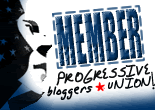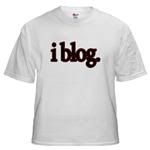Dr. Jekyll and The Washington Post
My online friend Sparkley writes:
Compare today's WP lead article with today's WP editorial -- CRAZY!!!What's going on in WaPoville? Don't these people even talk to each other? How can you publish an article on page A01 and op ed on page B06 on the same day... completely at odds with each other?
Compare the WP’s lead article, “A ‘Concerted Effort’ to Discredit Bush Critic” with its editorial, “A Good Leak," both from today.
From the editorial:
Vice President Cheney initially chose to be secretive, ordering his chief of staff at the time, I. Lewis Libby, to leak the information to a favorite New York Times reporter.
From the article:
The first of those conversations, according to the evidence made known thus far, came when Libby met with Bob Woodward, an assistant managing editor of The Washington Post, on June 27, 2003.
From the editorial:
Mr. Wilson originally claimed in a 2003 New York Times op-ed and in conversations with numerous reporters that he had debunked a report that Iraq was seeking to purchase uranium from Niger and that Mr. Bush's subsequent inclusion of that allegation in his State of the Union address showed that he had deliberately "twisted" intelligence "to exaggerate the Iraq threat." The material that Mr. Bush ordered declassified established, as have several subsequent investigations, that Mr. Wilson was the one guilty of twisting the truth.
From the article:
One striking feature …is that the evidence Cheney and Libby selected to share with reporters had been disproved months before.
(snip)
But the White House Iraq Group, formed in August 2002 to foster "public education" about Iraq's "grave and gathering danger" to the United States, repeatedly pitched the uranium story.
(snip)
At Cheney's instruction, Libby testified, he told Miller that the uranium story was a "key judgment" of the intelligence estimate, a term of art indicating there was consensus on a question of central importance…In fact, the alleged effort to buy uranium was not among the estimate's key judgments…
From the editorial:
In fact, (Wilson’s) report supported the conclusion that Iraq had sought uranium.
From the article:
Cheney, in a conversation with Libby in early July 2003, was said to describe Wilson's CIA-sponsored trip to Niger the previous year -- in which the envoy found no support for charges that Iraq tried to buy uranium there -- as "a junket set up by Mr. Wilson's wife," CIA case officer Valerie Plame.
From the editorial:
Mr. Libby is charged with perjury, for having lied about his discussions with two reporters.
From the article:
Libby is charged with perjury and obstruction of justice for denying under oath that he disclosed Plame's CIA employment to journalists.
From the editorial:
Mr. Wilson subsequently claimed that the White House set out to punish him for his supposed whistle-blowing by deliberately blowing the cover of his wife, Valerie Plame, who he said was an undercover CIA operative. This prompted the investigation by Special Counsel Patrick J. Fitzgerald. After more than 2 1/2 years of investigation, Mr. Fitzgerald has reported no evidence to support Mr. Wilson's charge.
From the article:
Fitzgerald said the grand jury has collected so much testimony and so many documents that "it is hard to conceive of what evidence there could be that would disprove the existence of White House efforts to 'punish' Wilson."
From the editorial:
As Mr. Fitzgerald pointed out at the time of Mr. Libby's indictment last fall, none of this is particularly relevant to the question of whether the grounds for war in Iraq were sound or bogus.
From the article:
Fitzgerald wrote that Cheney and his aides saw Wilson as a threat to "the credibility of the Vice President (and the President) on a matter of signal importance: the rationale for the war in Iraq." They decided to respond by implying that Wilson got his CIA assignment by "nepotism."
Hm. Here's the WaPo's editorial policy:
Editorial & Opinion PagesThe Editorial department publishes the editorials, letters to the editor and opinion pages. So as not to compromise the objectivity of the news department, the editorial staff operates independently; its editor, Fred Hiatt, reports directly to The Post's chairman, Donald Graham.
The editorial board meets daily to discuss issues and plan the unsigned editorials that present the newspaper's views on matters of local, national and international concern.
The opinion page publishes pieces by both regular columnists and guest contributors. Like the editorial page, the opinion page appears every day. On Sundays, the department publishes an extra opinion page, Close to Home, that emphasizes issues of local interest.
Letters to the editor also appear every day; they are meant to reflect a wide range of reader opinion and to allow readers to comment on Post coverage. On Saturdays, an extra letters page, Free For All, gives readers more room to talk back.
Until his death in 2001, Herblock was the Post's editorial cartoonist. He drew cartoons for the Post since 1946 and won four Pulitzer Prizes.
The WaPo Editorial Board members:
Editorial BoardFred Hiatt
Editorial Page EditorColbert I. King
Jackson Diehl
Deputy Editorial Page EditorsKen Ikenberry
Assistant Editorial Page EditorAnne Applebaum
Robert Asher
Sebastian Mallaby
Ruth Marcus
Benjamin Wittes
Editorial WritersMartha McAteer
Letters EditorTom Toles
Editorial Cartoonist
This comment from a reader on the WaPo blog says it all:
Truly heavy sigh.
Just like lipstick on a pig. It's STILL a PIG.
So you think you know Delilah?
Judges 16:19-- And she made him sleep upon her knees; and she called for a man, and she caused him to shave off the seven locks of his head.







1 Comments:
This kind of split-personality is normal for the corporate media who depend on press-releases from the whitehouse.
On one hand, they are under a lot of pressure to at least pretend to serve the public good - on the other hand, their lips are still firmly planted on the buttocks of the BFEE.
Post a Comment
<< Home